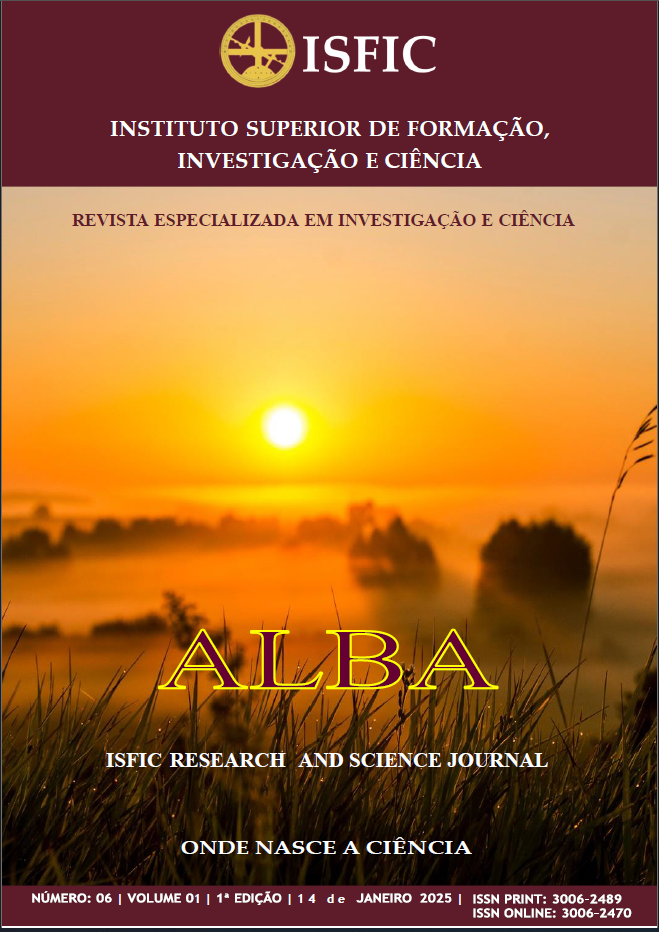Private Equity and Corporate Sustainability: Perspectives and Challenges for Mozambique
Keywords:
Private equity, Sustainability, Mozambique, Tax Incentives, SDGsAbstract
This study evaluates the impact of private equity (PE) on Mozambique's sustainable economic development, highlighting the relevance of the topic and framing the challenges, opportunities, and strategies to maximize the benefits of this investment model. Conducted with a mixed-methods approach, the research identified energy, agriculture, and technology as priority sectors, with energy leading in economic impact. Barriers such as political instability, lack of transparency, and limited infrastructure were analyzed as constraints to attracting investors. Key recommendations include the implementation of a more favorable regulatory environment, creation of tax incentives aligned with international best practices, and strengthening public-private partnerships. Reflection on the results indicates that effective structural reforms can enhance the potential of PE to foster inclusive growth and contribute to achieving the Sustainable Development Goals (SDGs). The study also underscores the significant impact of this approach on advancing scientific knowledge and benefiting Mozambican society.
Downloads
References
African Private Equity and Venture Capital Association (AVCA). (2020). Annual Private Equity Data Report. Disponível em: https://www.avca-africa.org
Banco Mundial. (2020). Doing Business Report 2020. DOI: 10.1596/978-1-4648-1537-3
Banco Mundial. (2021). Country Private Sector Diagnostic: Mozambique. DOI: 10.1596/35645
Banco Mundial. (2021). Relatório da IFC e Banco Mundial: Moçambique Pode Reforçar o seu Setor Privado com Vista ao Crescimento e Emprego. Disponível em: https://www.ifc.org/pt/pressroom/2021/26507
Banco Mundial. (2020). Infrastructure Development in Emerging Economies. Disponível em: https://www.worldbank.org
Diário Económico. (2022). África Deverá Atingir Recorde de Investimento Através de Private Equity em 2022 e Moçambique?
Ethos Private Equity. (2020). Annual Report. Disponível em: https://www.ethos.co.za
Fundo Monetário Internacional (FMI). (2021). Mozambique Economic Outlook. DOI: 10.5089/9781513539646.001
Fundo Monetário Internacional (FMI). (2022). Regional Economic Outlook: Sub-Saharan Africa. DOI: 10.5089/9781475589724.001
Grant Thornton. (2020). Estratégias de Private Equity para 2021.
Disponível em: https://www.grantthornton.com.br/insights/artigos-e-publicacoes/estrategias-de-private-equity-para-2021/
Kaplan, S. N., & Strömberg, P. (2009). Leveraged Buyouts and Private Equity. Review of Financial Studies, 22(4), 1247-1288. DOI: 10.1093/rfs/hhm014
Muíanga, C. (2019). Investimento, Recursos Naturais e Desafios para Moçambique. Instituto de Estudos Sociais e Econômicos.
Disponível em: https://www.iese.ac.mz/wp-content/uploads/2019/12/art_cmuianga.pdf
National Treasury, South Africa. (2020). Section 12J Tax Incentive Impact Report. Disponível em: https://www.treasury.gov.za
PwC Brasil. (2020). Private Equity.
Disponível em: https://www.pwc.com.br/pt/setores-atividade/private-equity.html
R2C Investimentos. (2024). Mercado Dinâmico de Private Equity em Países Emergentes Gera Oportunidades de Investimento.
Disponível em: https://www.r2cinvest.com.br/artigos/mercado-dinamico-de-private-equity-em-paises-emergentes-gera-oportunidades-de-investimento/
Rocha, K. (2019). Investimentos Privados em Infraestrutura nas Economias Emergentes: A Importância do Ambiente Regulatório na Atração de Investimentos. Instituto de Pesquisa Econômica Aplicada.
Disponível em: https://repositorio.ipea.gov.br/bitstream/11058/10217/1/td_2584.pdf
South African National Treasury. (2020). Renewable Energy Programme Report. Disponível em: https://www.treasury.gov.za
Exame. (2023). Índia é Novo Queridinho dos Emergentes, mas Brasil tem Histórico para Atrair Capital de Longo Prazo.
Disponível em: https://exame.com/lideres-extraordinarios/financas/private-equity-brasil-atrair-capital-longo-prazo/.







